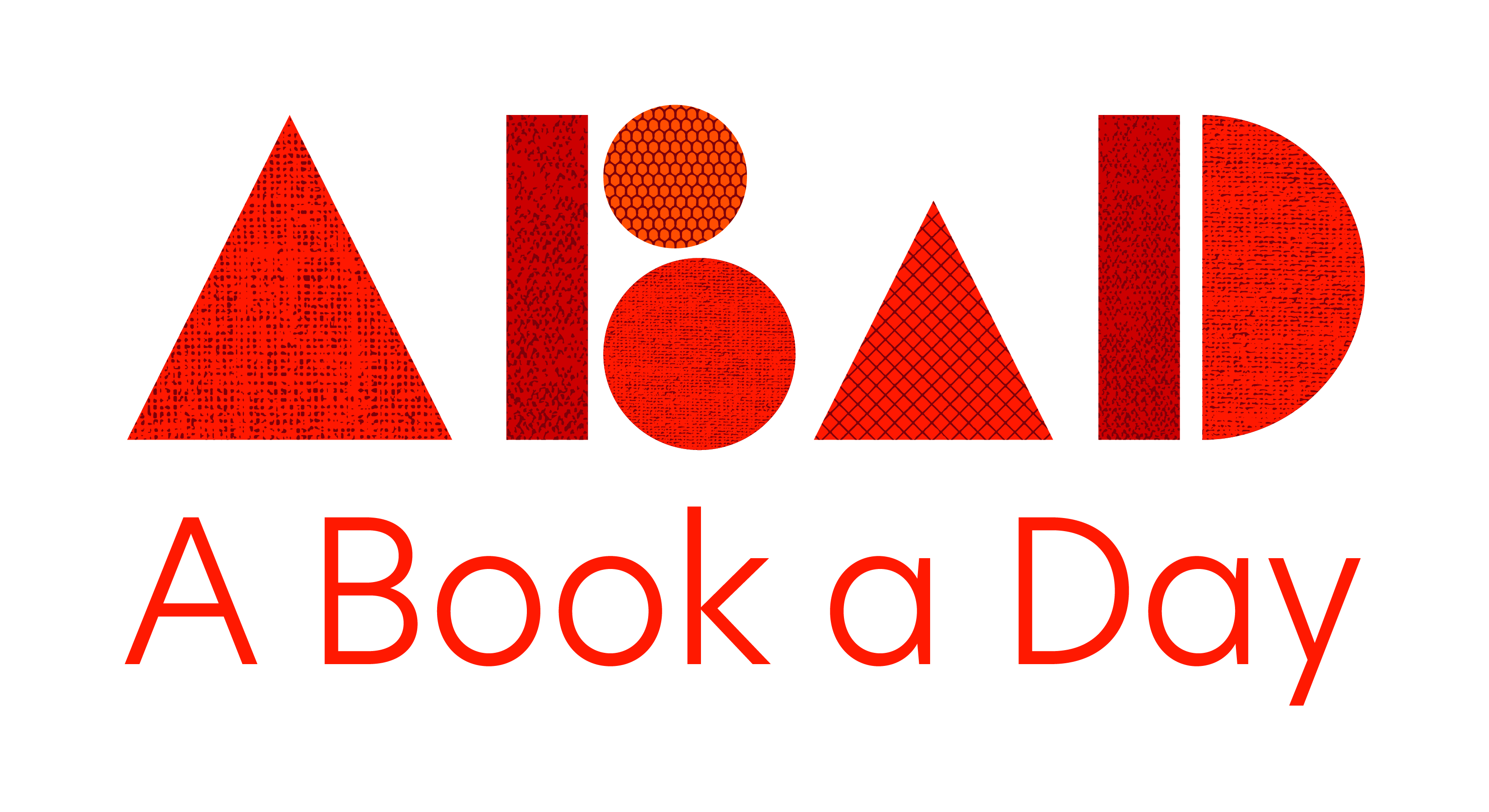Getting to Know Diane Mills
Literacy is a lifestyle.
Diane Mills
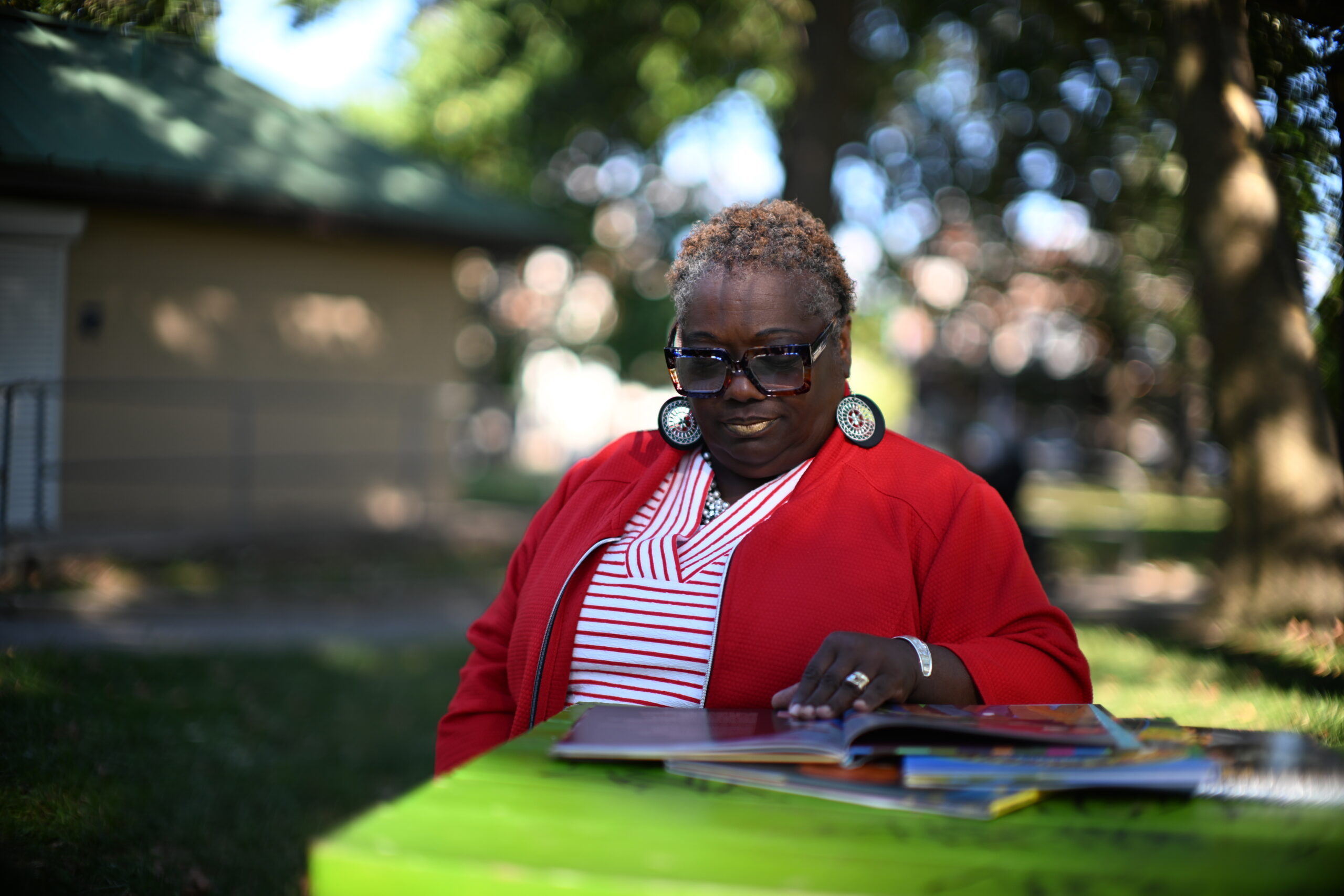
Diane Mills is an American literacy advocate and social services professional based in West Philadelphia. A co-facilitator of the West Philadelphia Reading Captains, Mills is dedicated to promoting childhood literacy and fostering fluent readers within the community. With over two decades of experience in social services, she has held significant roles, including Executive Director, Area Leader, and Case Manager under the Urban Affairs Coalition. Her extensive volunteer work, including a four-year tenure as a Team Leader with AARP, earned her the Community Celebrity Award from Cabot Creamery Co-operative in 2019. Mills holds a Bachelor of Science degree from Temple University and is certified in HIV Counseling and Testing.
Today we are sitting down with Diane Mills to reflect on her work developing and leading the Black History in West Philadelphia initiative. For two consecutive years, Diane’s vision has united community members, families, and educators to come together to celebrate and preserve the rich history of West Philadelphia.
Sibylla Shekerdjiska-Benatova:
Thank you again, Diane, for agreeing to meet. Can we start with you saying a couple of words about yourself – are you from Philadelphia?
Diane Mills:
Yes, I am. I was born and raised in North Philadelphia. I am the fourth child of five. I have a daughter, I am a cousin, a great aunt and a friend, an advocate, you name it. That’s what I am.
Sibylla:
I know you’re an advocate for literacy and children. When did you move to West Philadelphia?
Diane: I moved to West Philadelphia about nine years ago. I was born and raised in North Philadelphia. The strangest thing is that I never wanted to move to West Philadelphia. Sometimes you don’t know why you’re sent to an area, but I was sent here for such a time as this, and I am Christian, I believe in God, and I just believe that He sent me to this place. I don’t think things would have happened the way that they happened. Doors were just opening. And it just had a domino effect from here because I started doing literacy in 2015 even though my degree is in Community Health Education, and I started with literacy, with AARP (formerly known as the American Association of Retired Persons), the Experience Core, and decided to become a team leader. I did that for four years with Experience Core, and I had Cayuga school, and we had to do literacy. Literacy was the focus. I got into literacy because of my family circle – they can read, but they cannot comprehend. Some of my family and friends struggled with reading.
I see that children’s behavior stems from not knowing how to read. A lot of the children had behavior problems because they couldn’t read; some of them told you that. We were mentors to the children, and they shared things with us, so we developed a relationship with them and did a lot of amazing things together.
My motto was to make sure that we have West Philadelphia people, highlighting people who have made an impact in West Philadelphia. I believe knowledge has power. You have knowledge – you have power. When you have a foundation, you get stability. When you combine these two elements together, it brings about a change. And what better way to do it than getting people in our own community to highlight people so they become more knowledgeable about the place they live in? As Maya Angelou said, when you know better, do better.
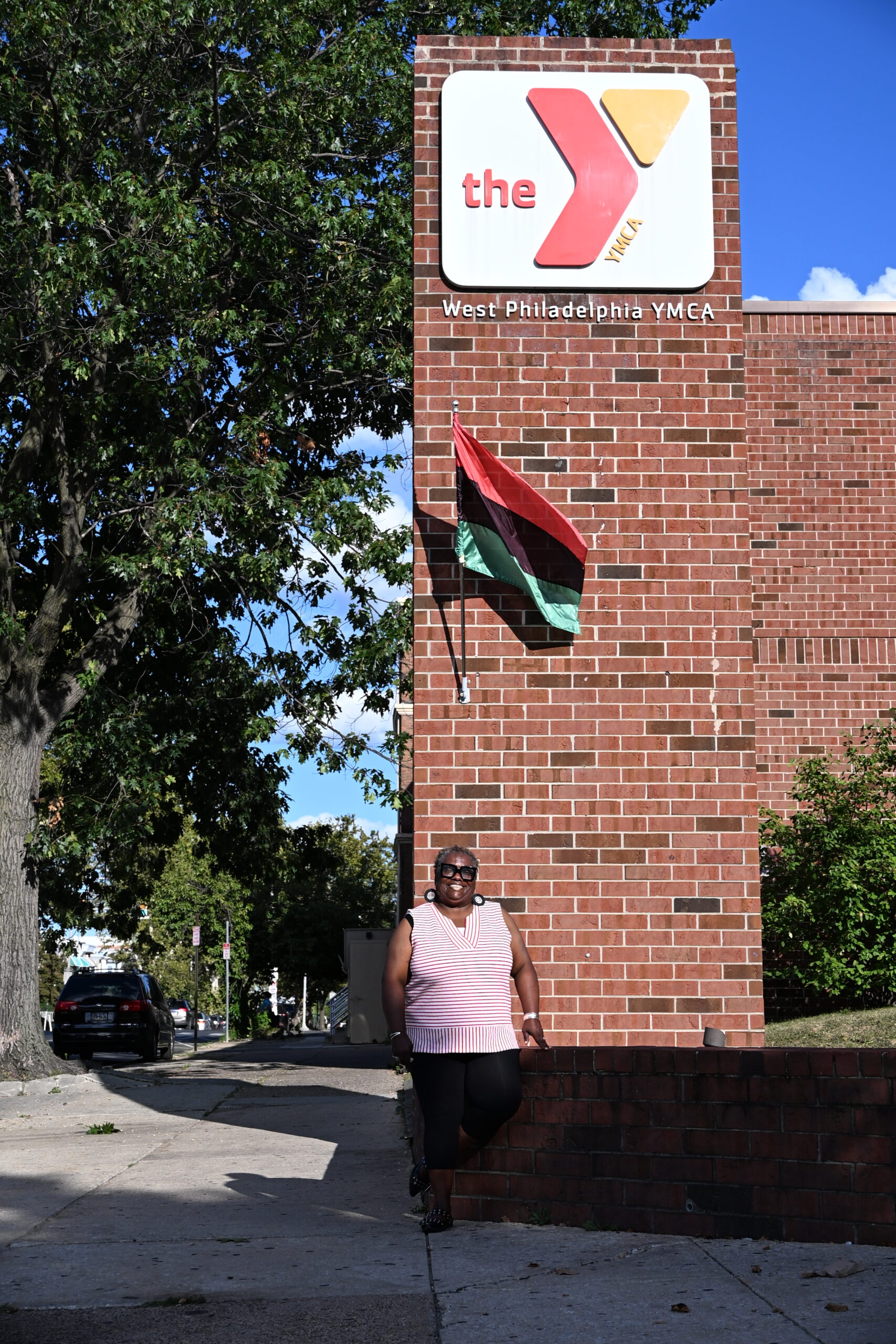
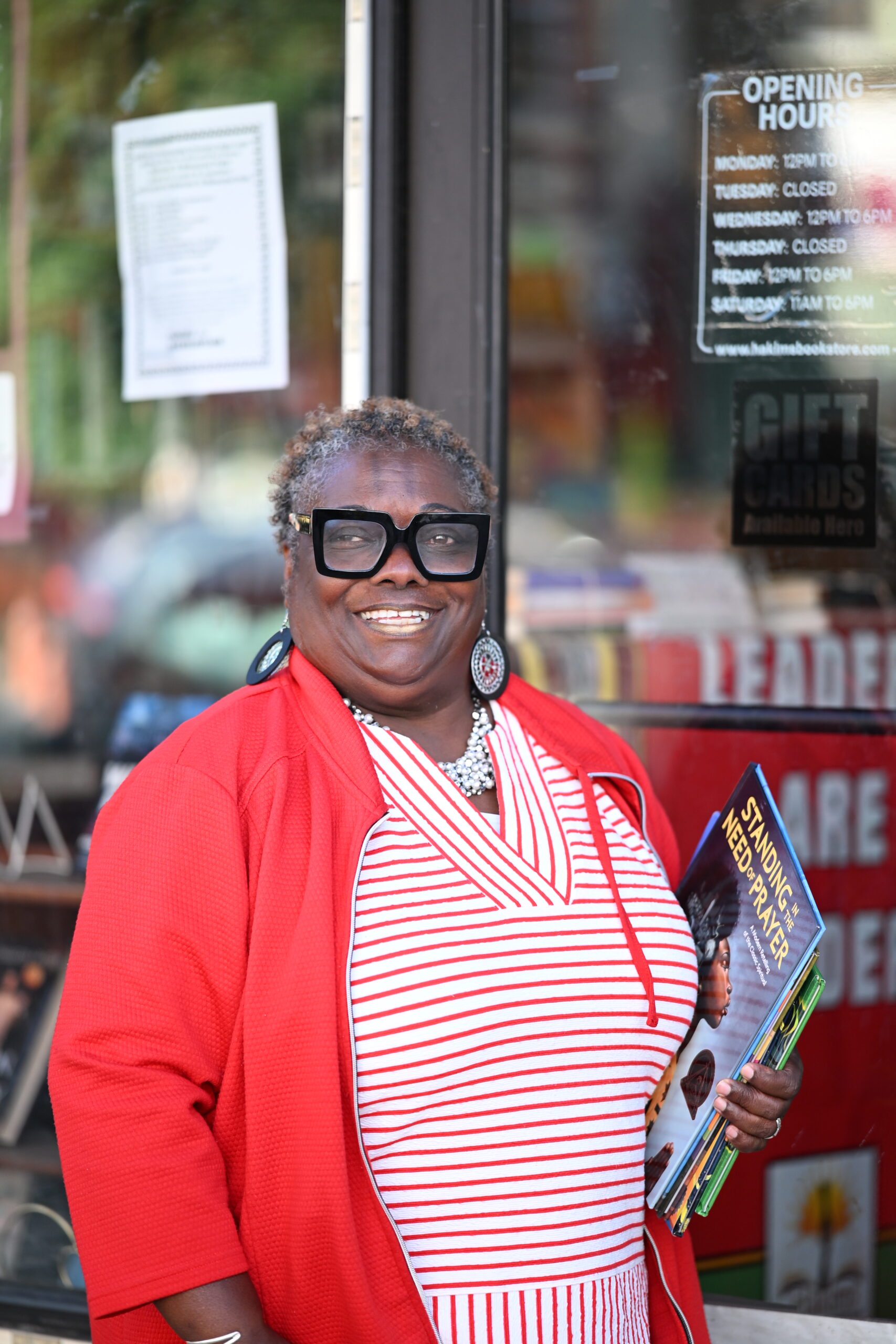
Sibylla:
How did you decide to have the event at the YMCA?
Diane:
I did a lot of work with the YMCA, I have worked with more than 100 organizations, between West and Southwest. We either do a vendor table, or we talk. I sit on some boards, I sit on some Advisory Councils, I get to know people, and we begin to talk. I try to work with everybody, because literacy is a part of everything. That’s how I became acquainted with these people. That’a how I became knowledgeable of things, because of the places I go to and the things I do, because I was everywhere.
I did not know how the event would turn out – I was shocked the first year because of the turnaround, despite the rain. This year, it took a different route, because we wanted to do something different. I wanted to change some things and make sure we had kids involved this year. We got a busload of kids to come from Hamilton, from Debbie’s Little Shepherds, from other programs. We had kids come from different places, and they brought kids. That’s what we want to see, more children so they can get black history, their history. We wanted them to understand the history, because you can’t change it – that’s a legacy. It’s a foundation, it’s knowledge, it’s stability.
Sibylla:
I’m sure you kind of sit down and go back and think about everything that stays with you, everything that made you proud of the things that you did last year and this year, because this now looks like a tradition that you’re shaping. What makes you most proud?
Diane:
The fact that we can bring people to work together from West Philadelphia as a village. A lot of the organizations are working together. It’s become a network, a community. I’m so happy that we created a line dance for West Philadelphia. Last year we created the Africa Black Pledge for West Philadelphia and we put it back again this year. We wanted to highlight people who were doing at least 40 years of work in West Philadelphia with daycares. We highlighted Miss Lola Rooney, Miss Deborah Butler. We work with so many of these people, and this is something I want to do on my own.
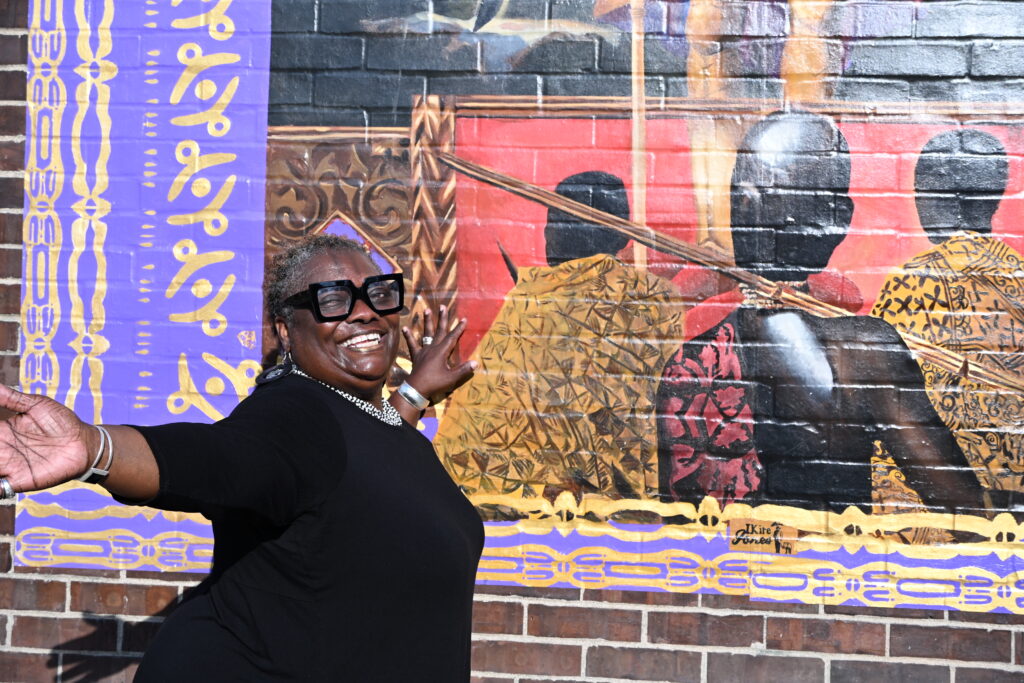
Sibylla:
Tell me a little bit more why bringing literature and literacy is so important for you for this event.
Diane:
Literacy is a lifestyle – what’s going to happen if you don’t know how to read? You need to read to take your medicine. You have to read to sign papers, go through your bank account, anything that you do you need to know how to read. It’s a lifestyle. It’s essential.
Sibylla:
This is a question from somebody who was not raised here – how come literacy and education in the US are not a bigger priority, with more resources dedicated to investing in our children’s future?
Diane:
That’s the biggest question. But you know what? We as a community can bring the joy back to it. We have to think outside the box. We can’t put everything in the box. You have to make it creative. You have to make it exciting for kids and you know you’re competing with technology taking everybody’s brain. You know, you don’t have to think, you just push buttons or you just speak. We’re not using the skills that we really need. Look at AI – you don’t really have to think, just say what you want to say, and it does it for you.
Editor’s note: Diane later added:
“Children are taught how to read from K-3rd grade, and 4th grade is when they begin to learn how to read. We need to focus on the early adoption of reading habits to ensure kids are not left behind. Learning to read keeps your legacy alive.”
I believe that where there is unity, there’s strength. We have to come together, because we can’t do this by ourselves.
Diane Mills
Sibylla:
But AI is somewhat recent- the issues of lack of proficiency, lack of understanding of texts that kids are reading – that’s been going on for quite a while, way before AI how? It’s pretty evident in West and North Philadelphia. It is a big issue for this city in particular, I’m sure, for other cities as well. But it’s a big urban city. How is it possible that we are here? And then I want to ask you about how we can revert this? And you started speaking about making education exciting.
Diane:
I’m very passionate about what I do. I really enjoy what I do. Having faced death twice, I believe life was given to me, and I want to give back. That’s one way of me giving back, because I was not here. I could not do these things. This is one of my missions – literacy, and I have a passion for it. You have to have a passion for what you do. If you don’t have passion, you’re not going to reach people, and people can see that you’re not concerned about what you do. I don’t look at it as just a job. I just look at it as something that I love to do.
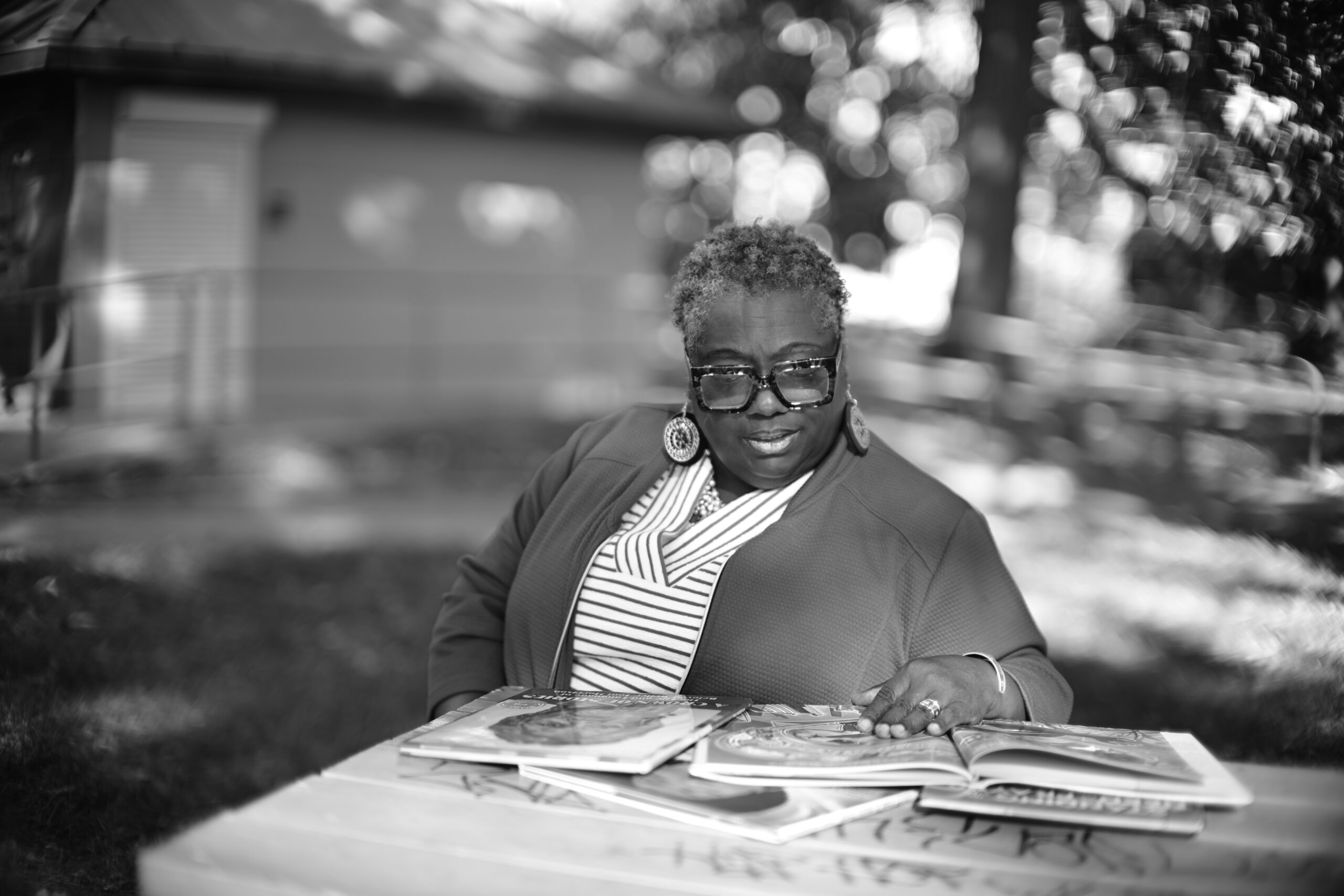
Sibylla:
Diane, I know our time is kind of moving, but I want to ask you something you don’t have to answer, but I’m sure it’s on the minds of many people around us. Are you concerned about the next four years? What would you like to tell people for the next four years? I feel people falling apart around me, and..
Diane:
I’m glad you said that, because I didn’t know all of this was going to happen this year, if it could come at a better time than this, because we really had a table that talked about being free and freedom.
You being free and you being free – for freedom and the opportunity, because that was the thing that we talked about. What is it? You know, some people passing needed to be reignited, right? Some people just quit. This is something to really reignite things in it, because it was about ordinary people doing extraordinary things. These are some of the people from West Philadelphia. Now, if they could do it, why can’t you do it? Right?
They had struggles, just like we had struggles, but they kept going. I just believe in having a strong support system. Everybody doesn’t have that, but that’s the reason why we wanted these villages. That’s why we had people here to get them connected so they can build it back up again with their unity, their strength. We have to unify with each other. I believe that where there is unity, there’s strength. We have to come together, because we can’t do this by ourselves.
Sibylla:
What will you tell people who are at their breaking point and want to quit?
Diane:
Don’t. I have always said this – the richest place in the world is the graveyard, because the great people go without doing their assignments, whatever they want to do, they take it to the grave. You don’t have to take it to the grave. Start connecting with people, get it done. So many people went to the grave without completing their assignments. How many times have we said, I wish I had done this? What if I wouldn’t have done it? I wanted to quit, but I didn’t. I had support. I believe that you just have to find the right circle of friends. You gotta connect with people to push you. I help push people. People help push me. That’s always been my circle, people who push me. Diane, you can do this. It’s going to be alright.
Editor’s note: Diane later added:
“I believe in God. God is my source, I pray about things, and I go to him for everything. My family, too. My mother pushed me to make sure I did whatever I wanted to do. She would never let me quit. She gave us opportunities to do the things that we wanted to connect to. Going to the Salvation Army, we did pottery, canoeing… all these things that we had at a young age helped build me into who I am. We had a village back then, we have to go back to that. It seems to be what works.”
